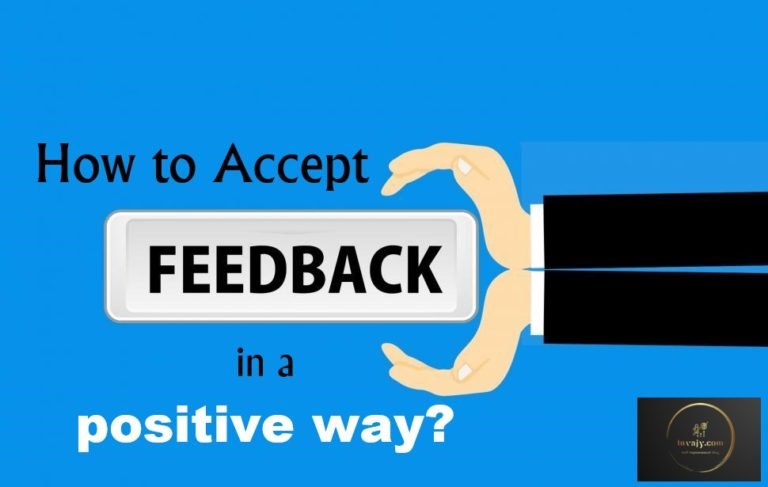11 Bad Habits That Limit Your Potential (You Should Quit Now)
Break free from the chains of bad habits! Discover insights and strategies to overcome negative patterns and build a happier, more fulfilling lifestyle.

Unleashing your full potential requires a conscious effort to identify and eliminate habits that hinder personal growth. Many of us inadvertently engage in behaviors that restrict our potential and inhibit success. By recognizing these habits and taking proactive steps to quit them, you can pave the way for personal and professional development. Here are habits that might be holding you back, and why it’s crucial to bid them farewell.
Contents
Procrastination
Procrastination is a pervasive habit that infiltrates many aspects of your lives, hindering productivity and stifling personal growth. It is not merely about delaying tasks; it is a psychological challenge rooted in factors such as fear of failure, lack of motivation, or difficulty managing time effectively. Overcoming procrastination requires a comprehensive understanding of its roots and the implementation of strategies to boost motivation and time management skills.
Research studies highlight the detrimental impact of procrastination on mental well-being. Mindfulness-based interventions have shown promise in reducing procrastination tendencies, providing a holistic approach to overcoming this habit.
This guide on how to stop procrastinating can help you: What Is Procrastination (And the Complete Guide to Stop Procrastinating).

Negative Self-Talk
Our internal dialogue has a profound impact on self-esteem and motivation. Negative self-talk can become a self-fulfilling prophecy, creating barriers to success. To break free from this habit, individuals must cultivate self-awareness and actively challenge negative thoughts.
Practicing mindfulness and self-compassion can be instrumental in changing negative thought patterns. Techniques such as positive affirmations and cognitive restructuring help replace self-doubt with constructive and empowering beliefs, fostering a more positive self-image.
Scientific studies on the effects of positive self-talk, such as “Self-Talk and Sports Performance: A Meta-Analysis” (Hatzigeorgiadis et al., 2011), emphasize its role in enhancing overall performance and well-being.
Fear of Failure
The fear of failure is a universal challenge that can cripple ambition and hinder progress. It often stems from societal expectations, perfectionism, or a fixed mindset. Embracing failure as a natural part of the learning process is essential for personal growth.
Failing to attempt is biggest failure of life” ~ Invajy

Research in the field of psychology, such as Carol Dweck‘s work on the “Growth Mindset” emphasizes the importance of viewing challenges as opportunities for learning and growth. Dweck’s studies showcase how individuals with a growth mindset are more resilient in the face of setbacks, promoting a positive approach to overcoming the fear of failure.
Lack of Goal Setting
Without clear goals, individuals may find themselves drifting aimlessly through life, lacking direction and purpose. Setting SMART goals (Specific, Measurable, Achievable, Relevant, and Time-bound) provides a framework for focused achievement.

Studies like “Goals Gone Wild: The Systematic Side Effects of Over-Prescribing Goal Setting” by Lisa D. Ordóñez, Maurice E. Schweitzer, Adam D. Galinsky and Max H. Bazerman; delve into the psychology of goal setting, highlighting its impact on motivation and performance. Establishing specific goals contributes to a clearer sense of purpose and direction, acting as a roadmap for personal and professional development.
Resistance to Change
Change is inevitable, yet many individuals resist it due to fear of the unknown or a desire for stability. Embracing change is crucial for personal growth, as it often leads to new opportunities and experiences.
Research in organizational psychology, such as the study “Leading Change: Why Transformation Efforts Fail” (Kotter, 1995), emphasizes the importance of adaptability in navigating organizational changes. Applying these principles to personal growth underscores the significance of embracing change for long-term success, fostering resilience and a proactive mindset.
Overcommitting
Ambition is commendable, but overcommitting can lead to burnout and compromised performance. Learning to prioritize tasks and say ‘no’ when necessary is essential for maintaining a healthy work-life balance.
Studies on workload management and burnout, such as “Job Demands, Job Resources, and Their Relationship with Burnout and Engagement: A Multi-Sample Study” (Bakker & Demerouti, 2007), shed light on the detrimental effects of excessive commitments. Balancing ambition with a realistic assessment of one’s capacity is crucial for sustained well-being, ensuring that energy is directed towards meaningful endeavors.
Lack of Self-Discipline
Self-discipline is the key to success. Without it, achieving long-term goals becomes challenging. Developing self-discipline involves creating consistent routines, setting boundaries, and cultivating habits that support productivity.

Creating a structured environment and breaking large tasks into smaller, more manageable steps facilitates the development of self-discipline. As individuals consistently adhere to routines and resist temptations that deviate from their goals, self-discipline becomes ingrained, paving the way for sustained success.
Multi-tasking
Only 2% of the population can effectively multitask and everybody thinks they are one of those 2%. When you multitask you are slowing down your brain, reducing efficiency, and decreasing your IQ. So instead focus on one task at a time.
It’s easy to get to the flow state this way.
Unhealthy Lifestyle Choices
Physical well-being significantly influences mental and emotional health. Neglecting one’s physical health through poor dietary choices, lack of exercise, and inadequate sleep can impede cognitive function and limit overall potential.
Lifestyle choices have become increasingly important for anyone wanting to achieve success in life. Being informed and intentional about diet, activity, sleep, and smoking can reduce your health risks and help you to unleash your full potential.
Perfectionism
While striving for excellence is admirable, perfectionism can become a paralyzing habit. The relentless pursuit of flawlessness can lead to stress, anxiety, and a fear of failure.
Studies on the psychological impact of perfectionism, delve into the detrimental effects of perfectionistic tendencies on mental health. Implementing strategies to overcome perfectionism involves creating a balance between high standards and self-compassion, fostering a mindset focused on continuous improvement and innovation.
Lack of Resilience
Life is filled with challenges, setbacks, and unexpected twists. Those who lack resilience may find it difficult to bounce back from adversity.
Research in positive psychology, such as “Building Resilience” (Southwick et al., 2014), explores the factors that contribute to resilience and its role in maintaining mental well-being. Developing resilience involves cultivating coping mechanisms, maintaining a positive mindset, and viewing challenges as opportunities for growth. Engaging in practices such as mindfulness, regular exercise, and seeking support from a network of friends or mentors fosters resilience, enabling individuals to navigate life’s ups and downs with grace and emerge stronger.
Wrapping Up!
Breaking free from habits that limit potential requires self-awareness, commitment, and a proactive approach to change. By addressing and eliminating habits such as procrastination, negative self-talk, fear of failure, lack of goal setting, resistance to change, overcommitting, lack of self-discipline, poor time management, lack of continuous learning, unhealthy lifestyle choices, perfectionism, and lack of resilience, individuals can unlock the door to a future filled with possibilities.
Take control of your habits, embrace growth, and embark on the path to unlocking the full extent of your potential. The journey towards success begins with the decision to quit these limiting habits today.






